Elevated garden beds are becoming increasingly popular with gardeners of all levels. The beds are above ground and can be built in a variety of sizes and materials, making them a versatile option for anyone who wants to grow produce or create a beautiful garden. In this blog post, we will discuss the advantages and disadvantages of elevated garden beds and provide options for choosing the right approach for your needs.The following content also has some reference value for raised garden beds.
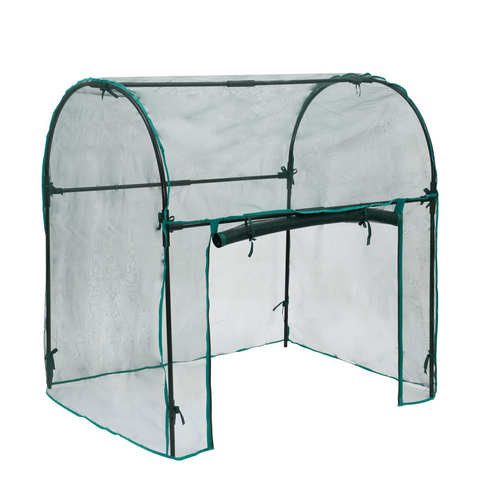
In this blog, you will learn:
- Better understand the potential advantages and disadvantages of growing plants using elevated garden beds
- Learn more about how elevated garden beds can help improve drainage, soil quality and accessibility
- A clearer understanding of the costs of building and maintaining elevated garden beds helps with budgeting and planning
- How to weigh the pros and cons of an elevated garden bed against other gardening techniques to determine which best suits your needs and preferences.
- Why can elevated garden beds help you improve soil quality, drainage, etc.
Pros and cons of elevated garden beds
Elevated garden beds have become a popular choice for many gardeners in recent years, as they offer several potential benefits for plant growth and maintenance. However, as with any gardening technique, there are advantages and disadvantages to using an elevated garden bed. In this blog section, we'll explore some of the main pros and cons of elevated garden beds so you can decide if they're the right choice for your gardening needs.
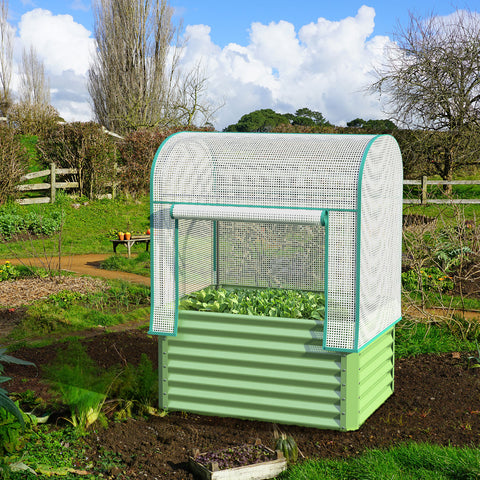
Advantages of elevated garden beds
- Improve pollution discharge,
One of the main benefits of elevated garden beds is improved drainage. Because these beds are above ground level, excess water can run off quickly, preventing waterlogged soil from harming plant roots. If you live in an area that gets a lot of rain, or water your plants regularly, good drainage is essential.
- Better soil quality
Elevated garden beds provide better soil quality than traditional gardens. You can fill these beds with high-quality soil, compost, and other organic material that improves the soil structure and provides essential nutrients for your plants. Also, you don't have to worry about soil compaction or erosion, which can be a problem in traditional gardens.
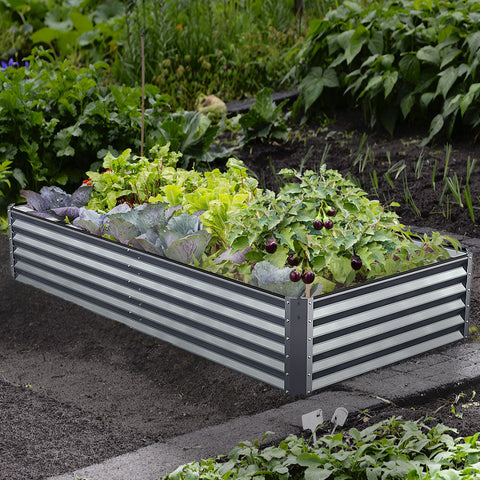
- It's easier to get
Another advantage of elevated garden beds is that they are easier to plant, water and harvest. In a traditional garden, you may have to bend down or kneel to reach your plants, which can be uncomfortable or even painful for some gardeners. Elevated garden beds are usually built at an easily accessible height, making them ideal for people with mobility problems or back pain.
- Reduce the risk of pests and weeds
Elevated garden beds can also help reduce the risk of pests and weeds. By keeping your plants off the ground, you can limit the number of pests that can attack them, such as slugs or snails. Elevated garden beds also make weed control easier, as you can add a layer of weed barrier fabric or mulch to keep weeds from growing.
- Aesthetic appeal
Finally, elevated garden beds can add a beautiful focal point to your outdoor space. You can build them in a variety of shapes and sizes and choose from a range of materials such as wood, metal or stone to suit your style and preferences. You can also use elevated garden beds to create layered or multi-tiered gardens that add depth and interest to your landscape.
Visit our website to browse all of our selection of elevated garden beds designed to make your home gardening effortless and stress-free.
Disadvantages of elevated garden beds
- Cost
One potential downside to elevated garden beds is cost. Depending on the size, materials, and complexity of your design, elevated garden beds can be more expensive than traditional gardens. However, the long-term benefits of soil quality, reduced maintenance and improved drainage may make the investment worthwhile.
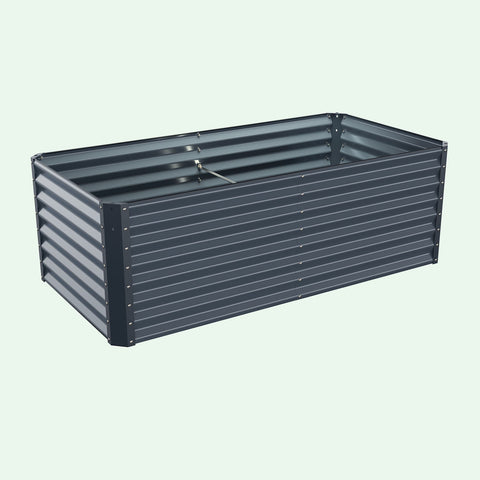
- Limited growth depth
Another potential disadvantage of elevated garden beds is limited depth of growth. Because the beds are above ground, your planting depth may be smaller than in a traditional garden, which limits the kinds of plants you can grow. This is especially problematic for root vegetables such as carrots or potatoes, which require more depth to plant.
- Reduce soil volume
Elevated garden beds may also have less soil volume than traditional gardens. You may need to add soil or compost more frequently to maintain soil quality and volume. Also, some gardeners find that elevated gardens dry out faster than traditional gardens, which may require more frequent watering.
Choose the right garden for you
Ultimately, the best gardening technique for you depends on your needs, preferences, and gardening goals. By considering the pros and cons of elevated garden beds and other gardening techniques, you can make an informed decision that will help you grow healthy, productive plants with less hassle.
How is it that framing it all 4' x 12' raised garden beds can remove pests, weeds, and improve the soil of your garden in no time
This large 4 'x 12' raised garden bed is sturdy, long, and perfectly rectangular; Add a practical and durable gift to your garden. Toolless assembly in a matter of minutes, what's not to like?
The 4 x 12 foot high garden bed with composite panels is a large size for an average home and will provide plenty of space for all your gardening needs. Stack multiple boards into a higher bed, take the stress off your back and knees, and care for your garden until your heart is satisfied!
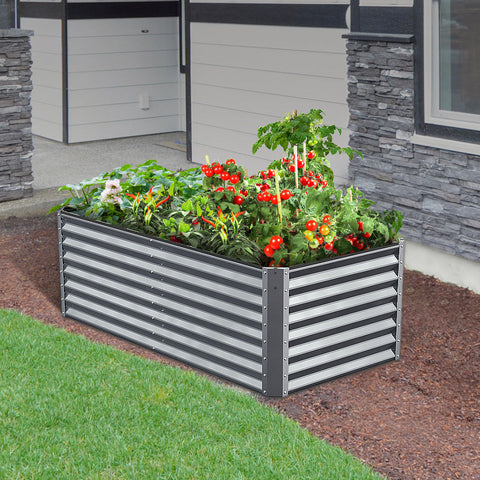
Here are some of the benefits our 4' x 12' Raised garden bed offers you and your family:
- The equivalent of 97 single-use plastic bottles transferred from ocean and landfills to each 4 '2 "profile composite board!
- Food safe composite panels are made from 38 percent HDPE plastic and 62 percent certified Sustainable source wood fiber.
- Limited service life (registration required)/ 5-year warranty (registration not required)
- Durability and low maintenance - Unlike cedar, composite panels are designed for durability. The board will not rot, crack or fall apart.









